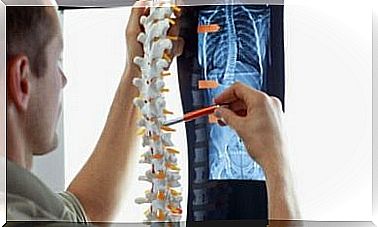Not All Calories Make You Fat!
You always wonder how many calories a food has in order not to get fat? Then you will be interested in our article. Because today we are talking about an excess of calories in the diet and how these are stored in the body.

Until not so long ago, weight loss diets focused on foods that were as low in calories as possible in order to prevent fat deposits. A balanced energy balance was almost the only parameter that was taken into account. But don’t forget: not all calories make you fat!
We now know that various other aspects are also important: the types of foods we eat, the nutrients in them, the response of the endocrine system, or the time that passes between meals, all also have an impact on body composition.
What are calories and what if we ingest too many?
We are actually talking about kilocalories (kcal). We use this unit to describe the energy stored in food. This energy is the fuel that our organism needs to carry out vital functions and to build structures.
After the food has been digested, the various cells in the body use this energy. However, if we take in more calories than we need energy, it is stored in the body to be used at another time:
- First, the organism stores excess energy in the muscles and the liver in the form of glycogen.
- Furthermore, fat cells (adipocytes) are also formed, in which the unused energy is stored.
So we are talking about calories being converted into fat when we exceed the required amount. And too much fat deposits are known to have a negative impact on health. Because, among other things, they lead to metabolic problems.

In addition to calories, you should consider other aspects as well
Calories are very important when it comes to maintaining a healthy weight. But don’t forget that a balance between calorie intake and expenditure is fundamental. In addition, other aspects must be taken into account:
Nutritional composition of food
Not all calories affect the body in the same way because they come from different macronutrients. Proteins, for example, have a very filling effect and have a better thermogenic effect than fats or carbohydrates.
On the other hand, the different composition of food also affects the metabolism. This, in turn, also affects whether or not calories become love handles.
Calories that are not absorbed
Not all the calories we consume are absorbed by the body. Because other factors, such as the cooking time or the intestinal microbiota, also play a role.
Hormonal Aspects
Calories provide us with energy, but how they are processed and used is regulated by hormones. A changed hormone system therefore also has an impact on the way in which we use energy and build up reserves.
Satisfying effect of food
Not all foods fill you up in the same way. This depends, among other things, on the nutrients it contains and the method of preparation. When the stomach is full, it sends a signal to the brain to let it know that needs are being met. Therefore, you should consume roughly the same number of calories with each meal.
Calories and love handles: it’s also a question of quality!

When you start a weight loss diet, or even if you want to gain weight, the first thing you probably think about is the number of calories. While this is important, remember that it is also essential to consider the quality of the calories.
The same amount of calories doesn’t have to have the same effect, it depends on what foods you eat. So you have to consider which foods are beneficial in this context and which you should better avoid. For example, we know that highly processed foods cause the following problems:
- Greater risk of obesity
- high blood pressure
- Metabolic problems
- Higher LDL cholesterol levels, etc.
It is therefore very important to eat a healthy and varied diet. Above all, opt for fresh and little or unprocessed foods such as fruits, vegetables, legumes, whole grains, eggs, etc. Ready-made snacks, cookies or industrial baked goods should be an exception.
If you eat healthy, it will have a positive effect on your metabolism. You will be less hungry and the thermal effect will be more balanced than if you frequently use the second food group. Too many calories are not stored as fat as quickly in a healthy and balanced diet. In the long term, this has a positive effect on health.
A calorie deficit is unhealthy!
We have seen that excess calories can build up in fat deposits, which is harmful to health. But too few calories are bad for your health. This is often due to the fear of not burning and storing the calories.
However, if you do not provide your body with sufficient energy, it will also be lacking basic nutrients. We need vitamins, minerals and proteins in order to maintain the body functions and to build up the structures. If there is a lack of it, it can lead to mood swings, lack of concentration and energy, and other ailments.
In the long term, weight gain could even occur, even if it doesn’t seem logical. If, however, the body is frugal when there is a deficiency, it tries to prevent risks by holding back the stored fat in order to have energy reserves on hand.
Calories make you fat, but other factors are also very important!
You shouldn’t just think about calories when trying to lose weight. The quality of the food and the nutrients it contains are particularly important. The method of preparation and eating habits must also be taken into account.
You should also keep in mind that other aspects that affect our endocrine system are also of great importance: for example exercise, sleep or stress. These factors also affect calorie processing and body weight.









